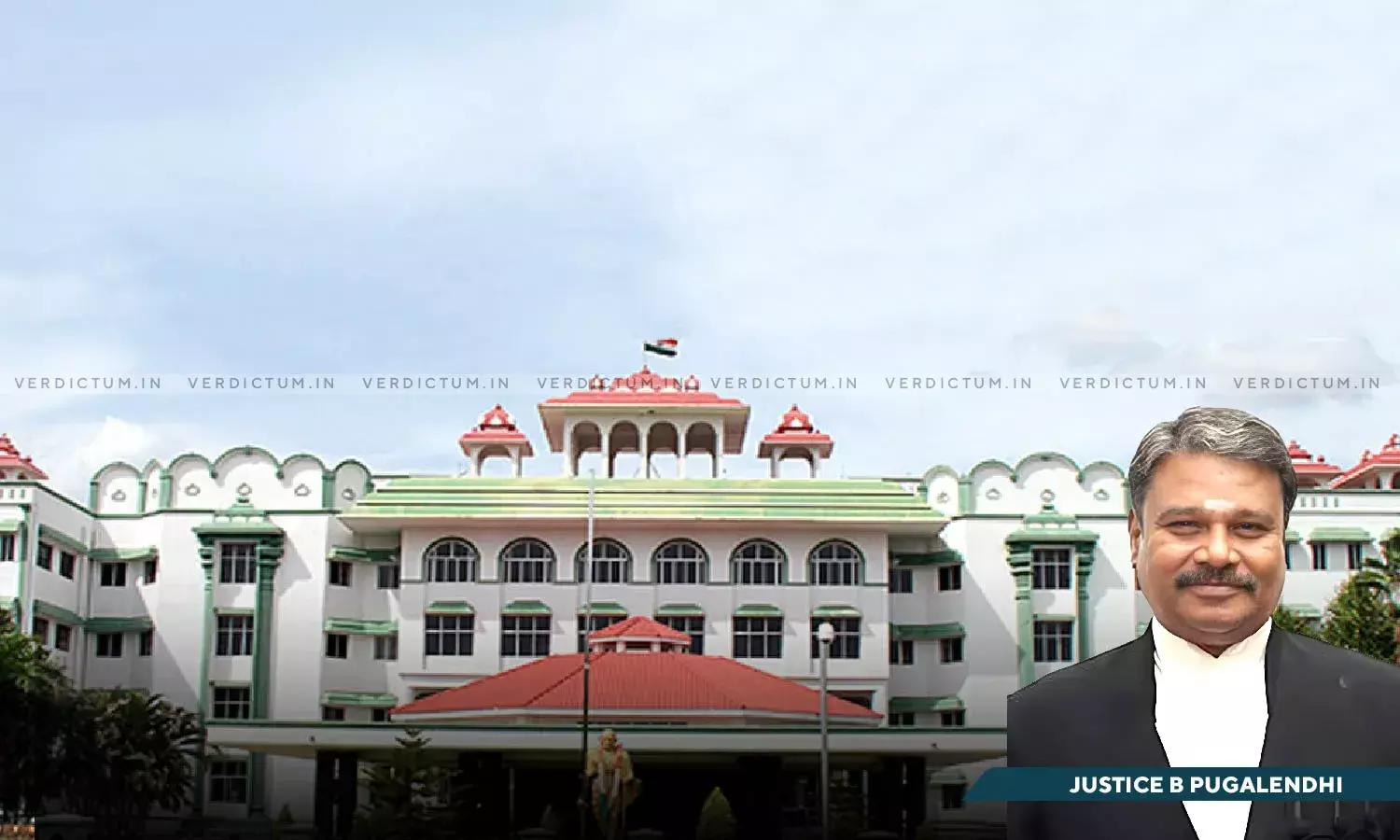Madras High Court Orders FIR On Widow’s Complaint Alleging ₹2 Lakh Bribe For Patta Transfer In Her Favour; Pulls Up DVAC For Functioning Like Post Office
Court directed State to strengthen vigilance infrastructure, and said that DVAC cannot brush aside complaints merely for lack of documents

Justice B. Pugalendhi, Madras High Court, Madurai Bench
The Madras High Court has directed the Directorate of Vigilance and Anti-Corruption (DVAC) to register an FIR on a widow’s complaint alleging demand and receipt of Rs. 2,00,000/- in bribes by local revenue officials for facilitating patta transfers, including a Rs. 45,000/- transfer made through GPay to a VAO’s wife. The Court held that DVAC’s failure to take cognizance of the complaint and mechanically forwarding it to the Collector amounted to abdication of duty.
A Single Bench of Justice B. Pugalendhi observed, “The complaint contains specific names of officials, date-wise narration of the alleged demand and even details of payments made through digital mode. In such a situation, the authorities cannot simply forward the complaint to the District Collector without even summoning the petitioner to elicit more particulars.”
The Court added, “The purpose of constituting the Directorate of Vigilance and Anti-Corruption is not to act as a post office to forward the complaints received, but to act as an Investigating Agency to register cases and investigate into the same and file final reports. Every complaint cannot be brushed aside merely because documents are not enclosed.”
Advocate S. Vanchinathan appeared for the Petitioner, while Additional Public Prosecutor T. Senthil Kumar represented the Respondents.
Brief Facts
The Petitioner, a widow, claimed inheritance over certain properties owned by her late father-in-law. She alleged that after his death, the properties were fraudulently alienated with the connivance of local revenue officials. Despite producing registered documents to assert her family’s claim, the authorities allegedly ignored her and instead colluded with someone to effect patta transfers in his name.
She submitted that officials demanded Rs. 2,00,000/- as bribe for issuing patta in her favour, and she paid Ps. 45,000/- via GPay to the wife of a Village Administrative Officer (VAO). Yet, no action was taken in her favour. She lodged a written complaint with the DVAC. However, instead of registering an FIR, the DVAC simply forwarded the complaint to the District Collector stating that “no enquiry was conducted”. Aggrieved, the Petitioner approached the High Court seeking registration of an FIR on her complaint.
Reasoning of the Court
The Court found that the DVAC had failed to exercise its investigative function and instead passed the buck to the revenue administration. It noted that the Department cannot simply reject complaints for want of supporting documents, especially where specific names, dates, and digital transactions are mentioned. The Bench held that DVAC had a duty to summon the complainant, verify facts, and act on credible material.
The Court noted, “The Court also notes that the patta mentioned in the complaint appears to have been transferred in a highly suspicious and expedited manner. While action has been initiated against the Village Administrative Officer, the sequence of patta transfers, their timing, approvals, and subsequent transactions, requires independent and detailed scrutiny. Let the Village Administrative Officer alone not be made a scapegoat. The entire chain of transactions and officials involved in these patta transfers must be reviewed thoroughly..”
Referring to the provisions of the Prevention of Corruption Act, the Court clarified that Section 17-A, which requires prior sanction for inquiry into official acts, would not apply to demands for bribes unrelated to official recommendations or decisions. It added, “This Court is of the considered opinion that Section 17-A of the Prevention of Corruption Act is not a license to demand bribe and the said provision is applicable only for the acts done in discharge of official duties, that too, prior to registration of the case.”
The Court also took judicial notice of the manpower crisis within DVAC, and observed, “The strength and effectiveness of the Vigilance Department is crucial in preventing corruption. This Court is informed that while the sanctioned strength is 611 Officers / Officials, only 541 are currently working, and the Department is expected to oversee more than 16.93 lakh Government servants across the State. Approximately 15,000 complaints are received annually. It is obvious that the current manpower and infrastructure are grossly inadequate to address the scale and complexity of corruption.”
The Court further criticised the limited disciplinary action taken only against one VAO, when the complaint implicated several officers. The Court remarked, “Combating corruption is not an optional policy, it is a constitutional imperative.”
Accordingly, the Court disposed of the petition and directed the DVAC Superintendent to register an FIR based on the Petitioner’s complaint, if it discloses a cognizable offence, and to carry out the investigation independently of any departmental disciplinary proceedings.
The Bench further directed the District Collector to appoint an independent officer to re-examine the patta transfers in question. Further, it instructed the Government of Tamil Nadu to take necessary steps to strengthen the resources and manpower of the DVAC within a period of six months. The Petitioner was directed to extend full cooperation with the investigation.
Cause Title: Malar Selvi v. Director, DVAC (WP. (MD)No.21023 of 2024)
Appearance:
Petitioner: Advocate S. Vanchinathan
Respondents: Additional Public Prosecutor T. Senthil Kumar; Government Advocate P.T. Thiraviam
Click here to read/download Order


